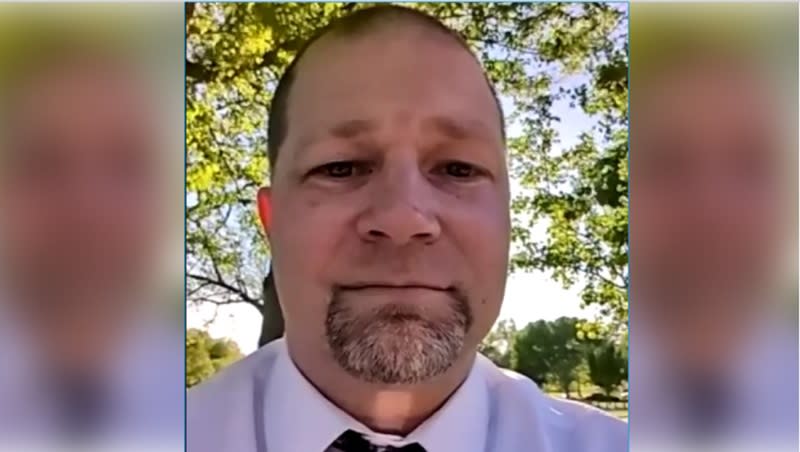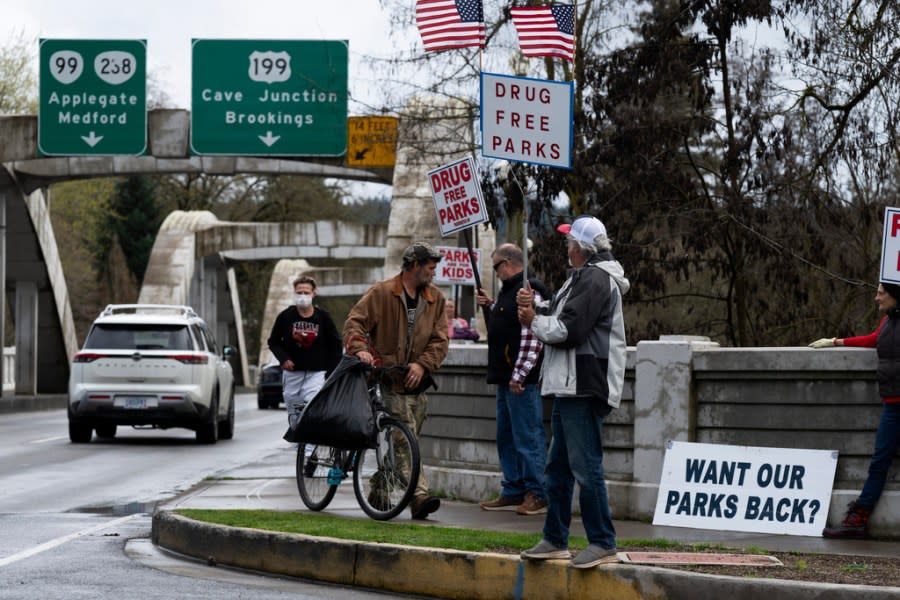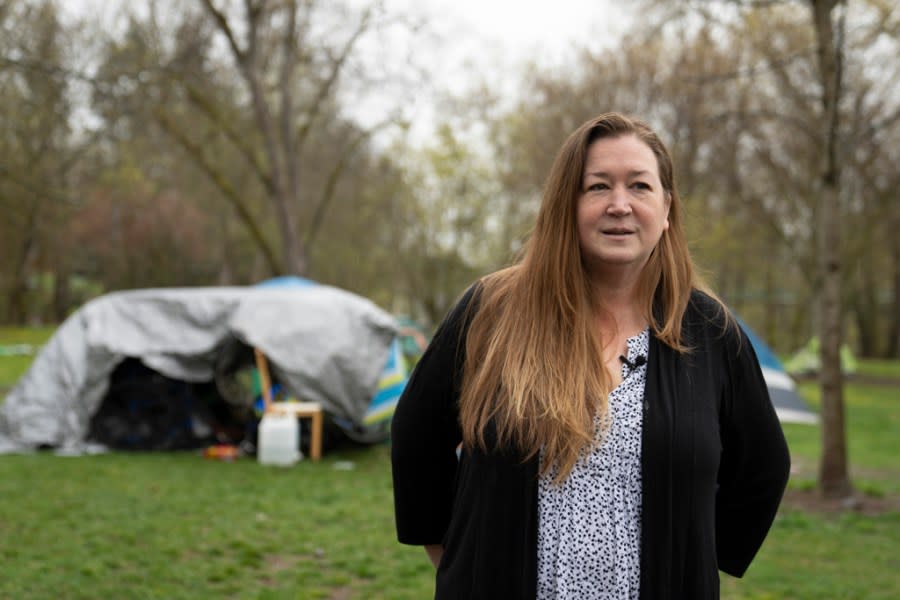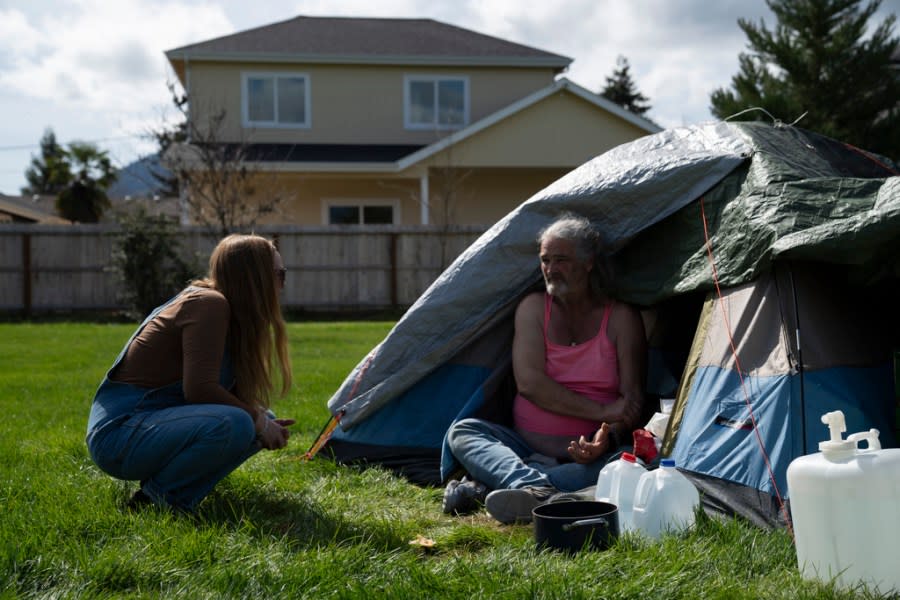Grants Pass homeless case at SCOTUS ‘not complicated’
PORTLAND, Ore. (KOIN) — On Monday, the US Supreme Court will hear a case from Grants Pass, a city of 40,000 nestled in the mountains of southern Oregon, where rents are rising and there is just one overnight shelter for adults. As a growing number of tents clustered its parks, the city banned camping and set $295 fines for people sleeping there.
The 9th U.S. Circuit Court of Appeals largely blocked the camping ban under its finding that it is unconstitutional to punish people for sleeping outside when there is not adequate shelter space. Grants Pass appealed to the Supreme Court, arguing the ruling left it few good options.
Salem attorney Aaron Hisel, one of the attorneys representing Grants Pass, said the case — at its core — is “not as complicated as it might seem.”

“When this case was initiated, the Martin v Boise ruling had only been out for, like, a month. And no one had a set of rules for how we regulated our park spaces or whatever for those that have homes, and then a separate set of rules for those that didn’t. We always operated and almost nearly universally jurisdictions have a rule that applies to everybody,” Hisel told KOIN 6 News.
“Then it comes down to the enforcement. And the nature of this challenge is that on behalf of the homeless, we’re asking the police on the ground to figure out who is involuntarily homeless and who is not, and take away the ability — not to punish — but to even write the ticket. It’s a pre-enforcement challenge to make it so that the officer can’t write the ticket and initiate the process in the first place based on a rubric that you, the government, haven’t offered them a good enough shelter first.”
The 2018 Martin v. Boise decision first barred camping bans when shelter space is lacking. It was issued by the San Francisco-based 9th Circuit and applies to the nine Western states in its jurisdiction. The Supreme Court declined to take up a different challenge to the ruling in 2019, before the solidification of its current conservative majority.
If the decision is overturned, advocates say it would make it easier for cities deal with homelessness by arresting and fining people rather than helping them get shelter and housing.
Hisel said he knows more affordable housing and emergency shelters “would take another percentage” of homeless people off the streets.
“But there are a number of people who for a variety of reasons that can not or will not utilize shelter and you still have to have a way to regulate it. And at least, at a very minimum, to move people along so they don’t usurp a piece of public property as their own indefinitely, like we’ve seen in other cities where they’re building full structures or something on public land.
“So it’s entirely unfair to the city to work under the narrative that’s been out there that they are actually out there enforcing this, like, to somebody just taking a nap with nothing but a blanket. There’s nothing of that kind in the record, that’s not what’s happening. The record’s replete with how they’ve given warnings ahead of time — and that fundamentally changes things.”
Members of the self-proclaimed “park watch” group protest on Friday, March 22, 2024, in Grants Pass, Ore. (AP Photo/Jenny Kane) Grants Pass Mayor Sara Bristol visits Tussing Park, Friday, March 22, 2024, in Grants Pass, Ore. (AP Photo/Jenny Kane) Kevin Reeves looks at his puppy while in his tent in Baker Park on Thursday, March 21, 2024, in Grants Pass, Ore. (AP Photo/Jenny Kane) Cassy Leach, a nurse, who leads a group of volunteers who provide food, medical care and other basic goods to the hundreds of homeless people living in the parks, talks to Kimberly Marie, who is homeless and camping in Fruitdale Park on Thursday, March 21, 2024, in Grants Pass, Ore. (AP Photo/Jenny Kane)
Jake Cornett, Executive Director and CEO of Disability Rights Oregon, told KOIN 6 News the focus should be on housing.
“No mother chooses to raise her children without stable housing, but when she finds herself in that situation, that family needs a safe place to rest,” Cornett said. “Criminalizing homelessness is not going to solve any problem in our communities. It’s past time for Oregon to focus on affordability, accessible shelters, low-barrier housing, and building a functioning behavioral health system.”
The Justice Department also backed the idea that people shouldn’t be punished for sleeping outside when they have no where else to go, but said the Grants Pass ruling should be tossed out because 9th Circuit went awry by not defining what it means to be “involuntarily homeless.”
Hisel said the earlier Grants Pass court decisions are “not anchored properly in the 8th Amendment. That’s why we’re here. Even with the severely mentally ill that can’t tell right from wrong, we don’t put the burden on the police officer to figure out those complicated issues before they make an arrest decision. The conduct is still a crime. We begin that process and then as part of that process, that person can raise their hand and say, ‘I have a defense here that makes me not guilty of this crime.’ Oregon has a necessity defense. We should be allowed to write the ticket.”
He added, “The way that the 9th Circuit got there was by saying the 8th Amendment’s ‘cruel and unusual punishment’ clause was what barred that, and we think that was fundamentally wrong. We don’t think the 8th Amendment has ever been applied in that manner.”
The case will begin at 9:30 a.m. ET Monday. Hisel is not the lead attorney making the oral argument before the high court, but will be at the table as part of counsel for Grants Pass.
“We’re one of the last arguments of the term and the term itself ends in June,” he told KOIN 6 News. “So we would expect a ruling toward the end of June.”
The Associated Press contributed to this report.
For the latest news, weather, sports, and streaming video, head to KOIN.com.




